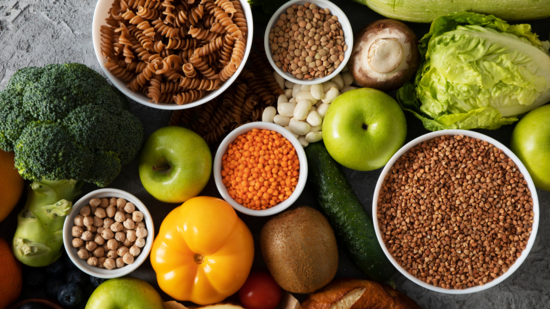Healthy digestion is key to preventing or alleviating haemorrhoid symptoms. Fibre plays a crucial role in the process, softening stools and encouraging bowel movements. Here are some tips on how you can easily incorporate fibre into your everyday life:

Haemorrhoids and nutrition: How high-fibre foods can help
Whole grain for breakfast
Start the day with oatmeal, whole grain bread or muesli to get your digestion going.
More fruit and vegetables
Apples, carrots, berries and broccoli are high in fibre and promote gut health.
Nuts and pulses
Lentils, beans and almonds are not only nutritious, they're also an excellent addition to high-fibre meals.
Drink plenty
Fibre cannot work without enough fluid. Make sure you drink at least 1.5 to 2 litres of water every day.
What else you can do
Alongside a diet that's high in fibre, there are other helpful steps you can take to promote your digestion and gut health:
- Exercise as an aid to digestion: Daily exercise – be that a walk, yoga or cycling – stimulates bowel activity and prevents constipation.
- Tweak your eating habits: Take time over your food. Chewing well aids digestion. Small, frequent meals can be easier on the digestive system than large portions.
- Incorporate probiotic foods: Products such as natural yoghurt, sauerkraut or fermented drinks (e.g. kombucha) can promote the balance of intestinal flora and aid digestion.
- Don't hold back your bowel movements: Routine is important – go to the bathroom as soon as you feel the natural urge.
These extra steps can really help your digestion and reduce the chances of developing problems like haemorrhoids.
Help prevent and alleviate discomfort
Practical advice and inspiration to help prevent haemorrhoids and ease the discomfort they cause.



